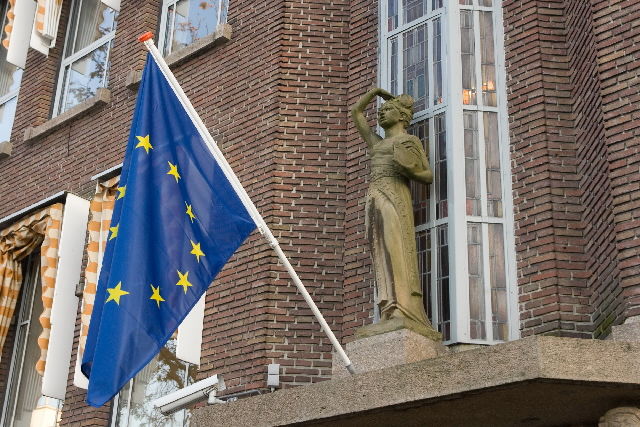Dutch influence in Brussels has waned under Schoof: NOS

The Netherlands has lost much of its influence in Brussels over the past 18 months, according to senior EU insiders speaking to broadcaster NOS ahead of Thursday’s European summit.
“People have stopped listening to the Netherlands,” one top diplomat said. Another described the country’s clout as “shrivelled”, and European Commission officials have been overheard asking: “Why should we make concessions to [prime minister Dick] Schoof?” NOS reported.
The outgoing government began with high ambitions, despite being warned its plans would be virtually impossible to achieve. It wanted an opt-out on EU asylum policy, exemptions on environmental and nitrogen rules, and a smaller Dutch contribution to the EU budget.
Former ambassador Henne Schuwer, who has represented the Netherlands in Belgium and the US, told NOS the government had “greatly overestimated itself”. As an example, he cited the nitrogen pollution issue: “The BBB said they’d go to Brussels, bang their fists on the table and fix it. None of that happened.”
Schuwer said the ministers sent by the government lacked European experience. “They thought their predecessors didn’t have a backbone and that they did — that they’d show Brussels who’s boss. But that’s not how it works. Brussels is a machine you have to learn to operate.”
Frequent personnel changes in The Hague added to the instability with four ministers attending talks on immigration within a year. Schuwer said rapid changes undermined the country’s credibility. Building long-term relationships is essential for medium-sized countries like the Netherlands, he said.
The EU summit on Thursday will address sensitive issues, including new sanctions against Russia and a proposal to channel €140 billion in frozen Russian assets to Ukraine through a loan scheme. Ukrainian president Volodymyr Zelensky is due to attend part of the meeting. Climate targets for 2040 and migration policy are also on the agenda.
Schoof’s lack of party affiliation also cost the Netherlands access to the European political networks that often meet before summits.
Financial Times journalist Andy Bounds told NOS that the Netherlands’ reduced role should not be overstated. “Yes, its influence is weaker than before, but when Mark Rutte was prime minister, the Netherlands punched above its weight. It was always going to be difficult for Schoof to fill that gap.”
Key player?
As the EU’s fifth-largest economy, it remains a key player. “Brussels doesn’t wait for new governments,” one insider told NOS. “Without a political mandate, it’s difficult to steer discussions — and you risk ending up with decisions that are bad for the Netherlands.”
Frans Timmermans, the former EU climate commissioner who is leading the GroenLinks-PvdA election campaign, told NOS on Thursday that it is only logical that Dutch influence in Brussels has been lost because of all the changes.
The Netherlands had always been a stable partner but “the Dutch position now has become rather vague”. “We really need a new cabinet quickly,” he said.
Thank you for donating to DutchNews.nl.
We could not provide the Dutch News service, and keep it free of charge, without the generous support of our readers. Your donations allow us to report on issues you tell us matter, and provide you with a summary of the most important Dutch news each day.
Make a donation